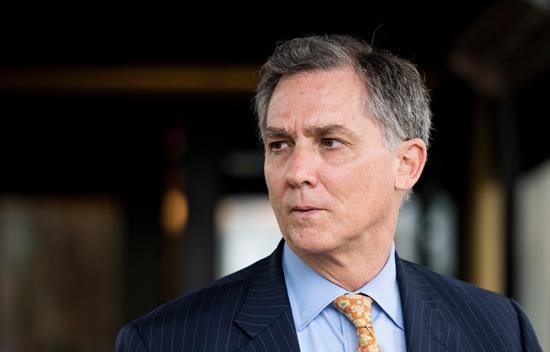Opinion | French Hill: Spending SpreeInfrastructure bill cost too much
Washington,
November 22, 2021
Opinion | French Hill: Spending Spree
Infrastructure bill cost too much Arkansas Democrat Gazette November 22, 2021 I voted no on the Washington-termed “infrastructure” bill, known as “BIF,” because Washington has a spending problem.
The federal government spends roughly $4.5 trillion per year, but last year the government spent an additional $6 trillion to fight the pandemic, get the economy open, and protect jobs. But Democrats wanted more, and in March pushed through another $1.9 trillion spending bill, when huge chunks of previously allocated money sat unspent in bank accounts. Now, the president signed BIF which contains another $1.2 trillion—$550 billion of which is “new money” that the Treasury will have to print. Altogether, that’s $13.6 trillion in just under two years, and you can understand why Americans’ costs of goods are rising: too many dollars chasing too few goods. BIF completely missed the mark. Only $110 billion of the BIF—less than 10 percent—will go toward traditional infrastructure—roads, bridges. But these projects will take years to materialize because the administration included zero reforms to the National Environmental Policy Act (NEPA), a law that requires federal agencies to examine potential environmental consequences of proposed major federal actions before issuing a permit to begin construction. NEPA has morphed into a costly labyrinth of red tape that only well paid trial lawyers can navigate and has stymied infrastructure development for years. After finding that the NEPA process takes more than seven years from study to shovel for a highway project, President Trump’s White House Council on Environmental Quality instituted reforms to bring that down to two years. But the Biden administration has already started rolling those back, and without NEPA reforms, BIF is just a Democrat talking point to be for new infrastructure without ever really seeing it materialize. While BIF was bipartisan, it did not receive input from anyone on the committees of jurisdiction in the House or Senate, and was entirely too much money given our fiscal distress and high inflation. House Republicans offered a sensible alternative—a surface transportation bill that was $400 billion over five years, with most of the money going toward traditional infrastructure like roads and bridges. It was a 32 percent increase over the last surface transportation bill in 2015 and included much-needed reforms to NEPA to get shovels in the ground faster. Further, BIF isn’t geared towards states like Arkansas. It’s full of provisions that benefit East and West Coast cities with mass transit and urban rail connections. There’s $66 billion to bail out Amtrak, $39 billion to modernize public transit, $12 billion for intercity rail service, and $7.5 billion for electric vehicle (EV) charging stations. Did you know there are only 1,500 registered EVs in Arkansas? The BIF is a classic big-government spending boondoggle. Even the broadband spending is too much. In September, during the Arkansas Farm Bureau’s Connectivity Summit, FCC Commissioner Brendan Carr said, “We are seeing, right now, an unprecedented infusion of federal and state dollars being directed toward efforts to bridge the digital divide. At the moment, the challenge is less the money and more how to coordinate among local, state, and federal leaders to make sure that money goes in the ground.” Additionally, on Oct. 20 the Senate unanimously passed legislation that would make available $500 billion of unused Covid-relief funds already in states’ bank accounts—nearly $1.2 billion in Arkansas—to use for various infrastructure projects. Nonetheless, Democrats preferred to print another $550 billion which will go straight to our national debt. To date, Democrats have spent $3.1 trillion and propose to spend an additional $4 trillion for Build Back Better. That’s $7.1 trillion before we even get to the annual federal spending. The consequence of pumping trillions of dollars into the economy is inflation, and we’re already feeling the effects of it in central Arkansas at the gas pump, the grocery store, and in our utility bills. President Obama’s former top economic adviser Larry Summers warned in May that the economy was “overheating” and inflation posed a risk. Mr. Summers pointed to a variety of contributing factors including fiscal stimulus and the policies of the Federal Reserve. Fast-forward and Mr. Summers is still sounding the alarm: “I do think we have a real issue with an overheating economy, and the Fed’s going to need to step in and help to control this.” The warning signs have been here all along, yet the Democrats persist. Given the long-term implications of this bill and Democrats’ tax-and spending spree, I could not in good conscience vote on a bill that further adds to our nation’s fiscal woes and will burden our future—especially when there are more fiscally responsible alternatives. |


